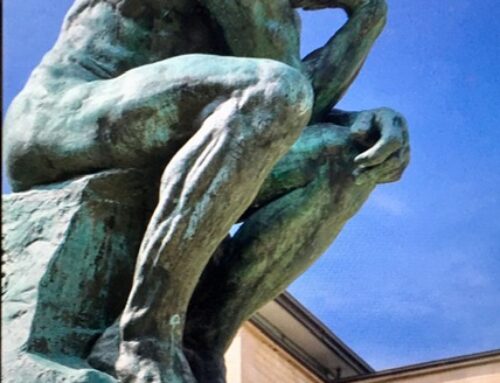 There is an old saying, “Blessed are those who expect nothing, for they shall not be disappointed.” Whether it was first uttered as pithy wisdom or a tongue-in-cheek comment on the likelihood of disappointment is not known. But either way, the idea is interesting.
There is an old saying, “Blessed are those who expect nothing, for they shall not be disappointed.” Whether it was first uttered as pithy wisdom or a tongue-in-cheek comment on the likelihood of disappointment is not known. But either way, the idea is interesting.
The pertinent question is, of course, expect from whom? Other people or ourselves? And therein lies the clash between past and present cultures.
When I was young, people were encouraged to expect much of themselves. For example, children were taught to be kind to their peers and show deference to their parents, teachers, and other adults (as well as to be “seen and not heard).” They also were taught that the way to be liked is to make themselves likable and the way to be admired is to make themselves admirable. For most of those children, the central idea that they had obligations to other people carried over into adulthood.
That was a time when terms like etiquette, manners, courtesy, and civility were prominent and the ideals they represented were valued, not only as matters or good form or refinement, but more importantly as a requirement of respect for other people.
Today the emphasis is reversed. A great many people hold others to a very high standard yet expect little or nothing of themselves. For example, when they loan something, they demand it be returned in good condition, yet they have no qualms about returning what they have borrowed dirty or even broken. When they are trying to merge into traffic, they expect other drivers to respond courteously, yet when the situation is reversed, they refuse to let the other driver in.
The list of examples could be easily extended. Here are a few others: Expecting others to keep promises but cavalierly breaking the promises they make to others. Demanding punctuality from others but being as late as they please themselves. Being offended if others do not give them complete and undivided attention when they are speaking, then fiddling with their cell phones when others are speaking. Refusing to receive criticism from others but being quick to give it. Expecting their voice mail messages and emails to be responded to immediately, yet letting others wait weeks or longer for responses to theirs.
There are surely many reasons for such behavior, but the most obvious one is that people under, say, 50 grew up in a different culture than their parents and grandparents did. Not only were terms like etiquette and manners out of favor by then, but the approach to parenting also changed dramatically. Young people were taught that they could never get enough self-esteem, self-acceptance, and self-love. On the other hand, they were led to believe that self-restraint, self-control (not to mention self-abnegation and self-sacrifice) are emotionally harmful.
They were encouraged to call all adults, including their parents, by their first names, allowed to interrupt adults’ conversations, decide what shows the family would watch, how much allowance they would receive, and so on. Teachers had them chant such self-affirmations as “I am smart,” “I am good-looking,” “I am wonderful.”
We shouldn’t be shocked to realize that such people often developed an attitude of entitlement and the expectation of being treated like royalty but not of reciprocating. And the consequences are doubly unfortunate. By expecting a great deal of others, they ensure that they will be disappointed; by expecting little of themselves, they cause others to be disappointed in them.
These considerations suggest that the old saying that began this essay, though serviceable in its day, must be revised if it is to be useful today:
Blessed are those who expect little of others but much of themselves, for they shall be in harmony with others and at peace with themselves.
Copyright © 2014 by Vincent Ryan Ruggiero



